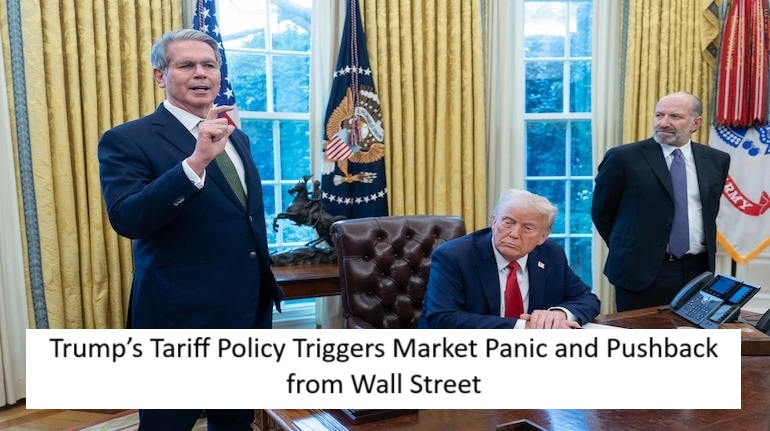
After President Donald Trump announced sweeping new tariffs, financial markets experienced immediate turmoil. Treasury Secretary Scott Bessent was inundated with messages from hedge fund managers and financial executives seeking his support to counter the decision. Given his prior role as CIO of Soros Fund Management, Bessent was seen as a potential bridge to the White House on economic matters.
While Bessent was part of policy discussions, he wasn’t behind the decision to impose tariffs. He reportedly provided market and economic projections based on different tariff models. The core decision-making group on the tariffs included Commerce Secretary Howard Lutnick, Senior Counselor Peter Navarro, and U.S. Trade Representative Jamieson Greer.
Tariff Announcement Sparks Market Losses
Trump’s tariffs, aimed at strengthening U.S. manufacturing and reducing reliance on imports, have clashed with Wall Street’s pro-global trade stance. The market's reaction was severe — over two days, $5.4 trillion in value was wiped from the market. The S&P 500 fell to its lowest point in nearly a year, fueling global recession fears.
Private equity firms canceled or delayed IPOs, while hedge funds reevaluated investment strategies amid uncertainty. JPMorgan Chase economists now project a U.S. recession this year.
Business Community Calls for Policy Rethink
Executives who previously backed Trump for tax and regulation reforms are alarmed. Citadel’s Ken Griffin criticized the tariffs as damaging to U.S. competitiveness, and Warren Buffett described them as aggressive. Some firms are expressing concerns through private channels, avoiding public comments to avoid political fallout.
Even among Trump’s Republican allies, unease is growing. Texas Senator Ted Cruz warned of economic damage and political consequences, while other lawmakers introduced bipartisan legislation to curb presidential tariff powers.
White House Stands Firm Despite Criticism
Despite the backlash, President Trump remains committed to his policy, stating it serves American interests. According to White House spokesperson Kush Desai, the tariffs address trade imbalances and aim to secure the country’s manufacturing base.
However, critics say the rollout lacked preparation and communication. There was no coordinated effort to explain the plan to the public or investors, adding to the market's anxiety.
Economic Team Faces Internal Pressure
While Bessent remains a key part of Trump’s economic team, the tariff strategy is primarily driven by others. With key IPOs paused — including those of Klarna and StubHub — financial institutions are reassessing expectations for deal flow and market recovery.
Even as Wall Street continues to react to the economic shift, the president spent the weekend competing in a golf tournament in Florida. His administration insists that long-term goals justify short-term market disruptions.
Read More: The Day the Oil Stood Still How a Single Drone Strike Just Rocked Global Markets

 Share
Share



